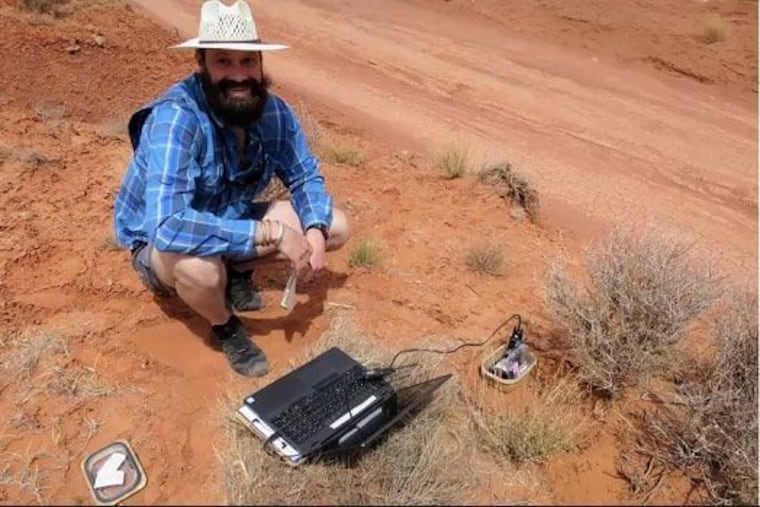Pennsylvania has hired its first outdoor recreation director to bring more visitors to parks, forests, and more
Cindy Adams Dunn, secretary of the DCNR, said that the need for someone to focus on outdoor activities became apparent during the pandemic.

The Pennsylvania Department of Conservation and Natural Resources has hired a former Penn State assistant professor with recreation and tourism expertise as its first-ever director of outdoor recreation with the goal of assessing needs and drawing in more diverse park and forest users.
Nathan Reigner, who holds a doctorate in natural resources, assumed the job recently with a $109,380 yearly salary.
Cindy Adams Dunn, secretary of the DCNR, said during a meeting Wednesday of an advisory council that the pandemic helped reveal the need for a leader to focus on outdoor activities “from a 10,000-foot view.”
Millions of Pennsylvanians, and out-of-state visitors, fled to the outdoors during COVID-driven lockdowns. State parks and forests saw record numbers of visitors for hiking, biking, camping, fishing, and other activities.
» READ MORE: Interest in Pennsylvania’s state parks has only grown even as pandemic restrictions lift
“We concluded that we need a director of outdoor recreation,” Dunn said, “so we’ve hired an incredible asset for outdoor recreation in Pennsylvania. ... He is a leader in outdoor recreation in the state, nationally, and internationally.”
She said Reigner, a graduate of the Upper Perkiomen School District in northern Montgomery and eastern Berks Counties, will help identify outdoor recreation needs and coordinate between the DCNR, private service providers, nonprofits, local and federal government agencies, recreation groups, and business leaders.
For example, Reigner could help find ways to close gaps in the state’s extensive rail-to-trails network with 181 trails totaling 1,891 miles.
Dunn said there is no shortage of planning to accomplish: Pennsylvania has mountains, 85,000 miles of rivers, 121 state parks, and 2.2 million acres of state forests.
“We have a citizenry that’s grown up with hunting and fishing and hiking and biking and paddling,” Dunn said. “We’re an outdoor state.”
Reigner, hired for the new post in December, was most recently a faculty member of Penn State’s recreation, park, and tourism management department. According to his online biography, he has managed and planned recreation and tourism for parks, protected areas, and natural and cultural heritage settings in the United States and abroad. He has a bachelor’s degree in sociology and anthropology from Gettysburg College, a master’s in forestry at Virginia Tech, and a Ph.D. in natural resources from the University of Vermont.
He has served as “technical lead, project manager, or principal investigator for research studies and planning projects in more than 60 units of the U.S. national park, national forest, national scenic trail, and national recreation area systems,” the biography states. His other experience includes tourism and protected area management projects in Greenland, Iceland, the Faroe Islands, Norway, Russia, Oman, and Ukraine.
In 2019 he was named a Fulbright scholar and is a member of the National Academies’ Transportation Research Board Standing Committee on the Transportation Needs of National Parks and Public Lands.
“I think that leisure and recreation really do deliver benefits that we cannot take for granted in that they touch our lives every day,” Reigner said at the online meeting of the DCNR’s Conservation and Natural Resources Advisory Council. “It delivers economic benefits, very core, very straightforward economic benefits.”
Reigner said the benefits to the state come from dollars spent for services like outdoor guides and outfitters, equipment manufacturers, retailers, and connected tourism and travel. He said businesses use their proximity to outdoor areas to lure workers freed from offices because of the pandemic. Those jobs no longer have to be clustered around cities.
“People want to move places where recreation is accessible, where recreation is diverse, where recreation is high quality,” he said. “I think outdoor recreation opportunities, in their ability to attract both residents and visitors ... can help small communities punch above their weight.”
Reigner said Pennsylvania has the sixth-largest “outdoor recreation value-added economy of any state.”
He views the job as a way to expand and publicize the benefits of outdoor recreation for all groups.
“There are also issues with race, ethnicity, age, ability,” Reigner said. “I’ll call it social or societal access that we really need to be investing in, and these are investments in people as well as in infrastructure.”